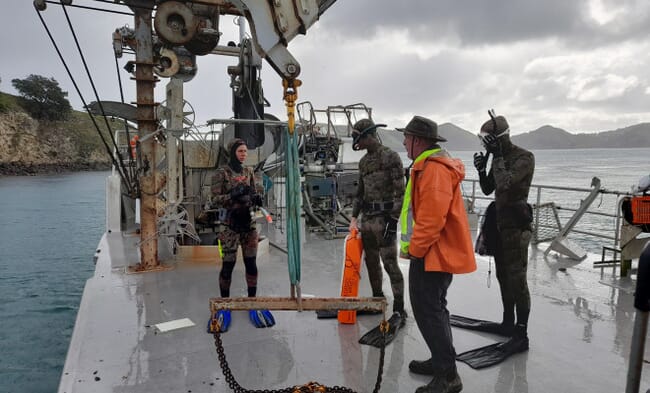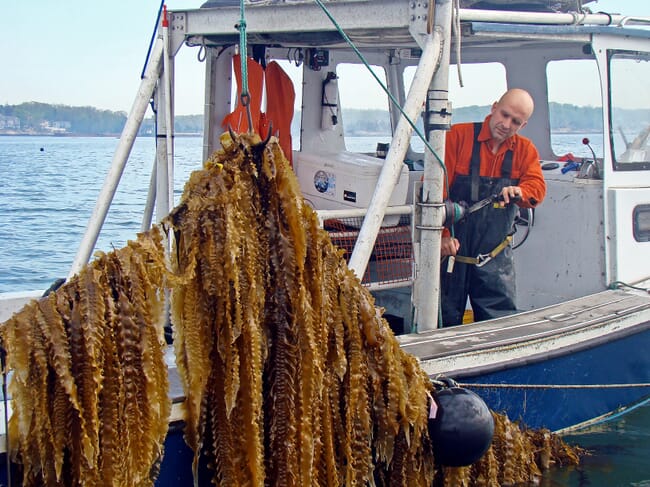
© MPI
The project will include hatchery production and marine grow-out of brown kelp (Ecklonia radiata). It will also feature data monitoring and measuring, while the operating model aims to support individual operators to establish independently owned marine farms.
The initial seaweed biomass to be used by the hatcheries will be partially harvested from local kelp reefs, in line with best practice guidelines outlined by the Ministry for Primary Industries.
"Through our Sustainable Food and Fibre Futures fund (SFF Futures) we’re investing nearly $2 million in a pilot programme that aims to help seaweed farmers throughout New Zealand to establish their own farms, using a regenerative ocean farming model,” said Steve Penno, Ministry for Primary Industries' (MPI's) director of investment programmes.
"The model was developed by GreenWave in the United States, and the pilot will take place in the Hauraki Gulf and Bay of Plenty. It will include hatchery production, on-water farming, seaweed processing, and training programmes for seaweed farmers.”
"It will deliver economic growth and jobs for the regions, which will also contribute to the government’s goal of sustainably growing the value of the aquaculture industry 4-fold to $3 billion by 2035, and help to boost our economic recovery from the Covid-19 pandemic."
Auckland Council is also investing $1.2 million in the 3-year project, with impact investing firm EnviroStrat and additional investors making up the balance. The project has been supported by grants from Ākina, BayTrust, Foundation North, Ports of Auckland and The Tindall Foundation during its establishment phase.
University of Waikato researchers Dr Marie Magnusson and Dr Rebecca
Lawton will oversee the research and trial designs, with input from the University of
Auckland’s
marine science faculty. Premium Seas Ltd and AgriSea Ltd will contribute their
production, market, and processing expertise and local aquaculture farmers will
provide onsite operations.

Auckland's mayor, Phil Goff, said in a press release that the pilot aligns with the council’s climate action and environmental goals, while creating green local job opportunities.
"Experience overseas indicates that seaweed farming has a number of environmental benefits, including removing carbon emissions from the atmosphere and helping to improve water quality by absorbing contaminants," he said.
"As well as protecting the health of our marine ecosystems and helping us achieve our climate change goals, partnering with the Crown, iwi, and businesses with specialist knowledge in the seaweed aquaculture industry provides an opportunity to create environmentally friendly, local job opportunities for Aucklanders."
Rising greenhouse gas emissions have far-ranging environmental and health impacts. A well-recognised greenhouse gas, carbon dioxide, can dissolve into the ocean making the water more acidic, threatening water quality and marine life.
Craig Mcilroy, Auckland Council’s general manager for healthy waters, is excited about the social, cultural, and environmental opportunities the project presents for Tāmaki Makaurau / Auckland.
"Seaweed may also be used as an alternative to common commercial biostimulants, and we can test their effectiveness on council farms. There are also the blue carbon sequestration benefits to be realised,” he said.




